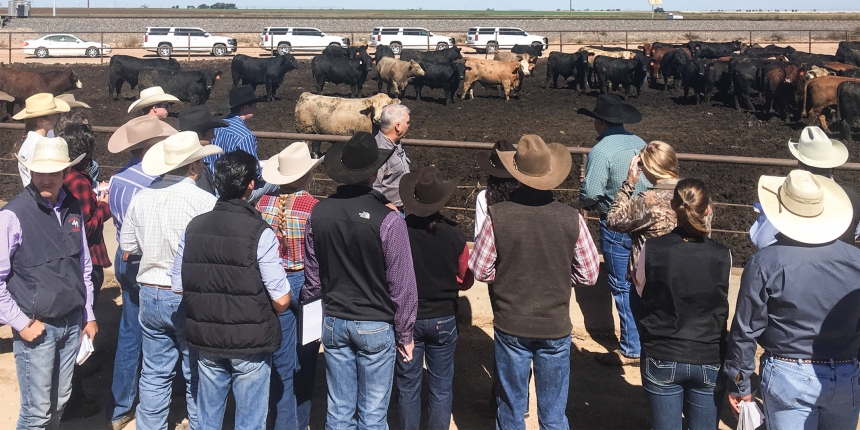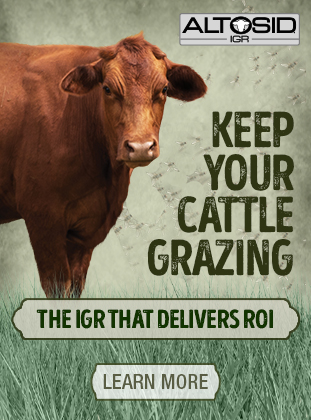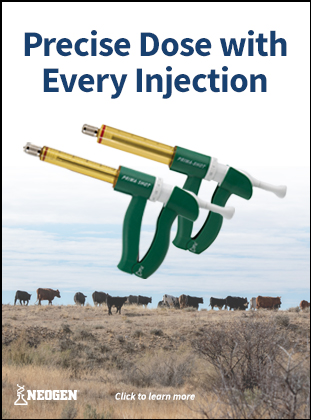Education Opportunities for Young People Desiring Ag Careers

Today there are many educational programs for young people who hope to find work or a career in various agriculture industries. Many colleges and universities offer courses in agriculture, animal science, ranch management, etc. Here’s a sampling of some of the university programs around the country.
Texas Christian University
A unique program at Texas Christian University (Fort Worth, Texas) prepares young people for careers in ranch management. Kerry Cornelius recently stepped down as Director of the Ranch Management Program but still teaches, as the Burnett Ranches Professor. He and his family run a stocker operation near Weatherford, and he has been on the staff of the Ranch Management Program since 1995.
“The biggest problem today for young people trying to get into in agriculture is cost. Land is expensive and we’re also seeing new all-time highs in cattle prices, which makes it harder to get started or gain equity,” he says. There is still opportunity, however, because many producers are becoming older, wanting to slow down or sell out.
“Our Ranch Management program is 9 months, and within that time the students go on 5-week-long field trips, travel about 9000 miles and observe about 70 different operations. There are many different ways to run cattle, create a health plan or nutrition program or grazing system. There is no one way to have a successful ranch. If I want to make a cake, I can buy a Betty Crocker cake mix and follow directions on the box and have a perfect cake, but ranching is a different,” he says. There are many variables and the recipe must change to fit the situation.
“In my own operation, rarely do I do exactly the same thing two years in a row. I’m always needing to tweak something to make it work. Maybe it’s raining, or drought, or the market is different; we have to be flexible,” says Cornelius. A rancher needs to know what the options might be, to tweak something enough to make it work that year, and sometimes it must be trial and error. Programs like this one at TCU are helpful to give students a basic background.
“One of the things about ranch management that’s unique, compared to other agricultural education options is that we focus on money and economics. This is like a business school for ranching.” To stay in business, this is crucial.
“A student came into my office recently to ask what he needs to focus on, in terms of courses, to be successful after he graduates. I told him he didn’t need to focus on any one thing. He needs to be a generalist on all things. It’s like a spoke in a wheel. If I have one really strong spoke but the rest have cracks, it could be a bumpy road and you will fail,” says Cornelius.
“We don’t want to teach you how to be a specialist in any one area; we want to teach you how to be a generalist and know enough to ask for help; when you need more expertise you might hire an accountant, consult with a veterinarian or a nutritionist. You’ll know enough to understand what they are saying and doing, and also know when you need help.
Dr. Matthew Garcia, Director/Associate Professor TCU School of Ranch Management says that currently the program is trying to modernize more and also look at agriculture as a whole. “We want to train our students to look at the entire system they are managing and the upstream and downstream effects of every management decision they make. They need to understand that the decision they make in any time frame will have both a production and an economic effect, and that all their decisions are related. Nothing operates independently,” he says.
“We are trying to teach them to manage in ways to avoid negative production and the economic consequences. The other thing we try to teach them is that they need to be adaptable in their knowledge. The same strategy won’t work every year. They have to be able to look at a situation, critically evaluate the system or the situation and apply management decisions accordingly, compatible with that system,” says Garcia.
“We want to help the young people who will be running agricultural industries in the future for us, and enable them to be successful in a changing world.”
Missouri State University
There are multiple opportunities for students to learn about beef cattle production at Missouri State University, with classes and hands-on learning opportunities. Adam McGee, PhD (Assistant Professor, William H. Darr College of Agriculture, Missouri State University) teaches animal science classes that include animal nutrition, a breeding class, a cow-calf production class and a stocker-feeder production class.
“We also offer a minor in Ranch Management. The goal is to hopefully get students prepared if they want to go into production agriculture, specifically the ranch side. It gives them an opportunity to intern with a ranching operation.” This can help provide the experience they need, to be successful when they graduate and go into that industry.
The Ranch Management minor is a 20-hour program. “This would be added to a major. At some point we hope to get it set up as a certificate by itself so it wouldn’t have to be included with a major—if a student just wanted the Ranch Management program by itself. Classes within that minor include one on Farm Business Management, looking at business records and all that’s involved, such as what is meant by depreciation, etc. The cattle industry has become more of a business; we have to find better ways to balance that aspect.” A person could do a lot of things right–taking care of cattle, producing forage, etc.–but if the business end is ignored or neglected and poor business decisions are made, and the operation doesn’t make a profit, it won’t be sustainable long-term.
“The other course required in that major is Forage Crops. It covers what they are, how they are grown, how to manage them, etc. There is also a 6-hour credit in ranch management experience—where they intern at a ranch. This can be an opportunity to see all the different sides of that operation. We are starting to flesh out this program more, especially at the University’s Journagan Ranch. My goal is for students to spend some time on the management side with Marty Lueck who manages that ranch. This enables the students to see what’s involved in managing a ranch, as well as the records and the business side,” says McGee.
“They discuss forage production, grazing, etc. and learn that side of the business, as well as the mechanic side.” They gain experience with all the different factors that go into ranching, and spend time at each of those stations to gain a well-rounded introduction to all of it, so they will be more prepared to do this after they leave.
Marty Lueck (Journagan Ranch Manager, Missouri State University) takes care of the cow herd for the university and also teaches and advises students who come for hands-on experience at the ranch. He says it’s fun to see students learn some things that are not in the book. “Their experiences here on the ranch add to their knowledge.”
“We also have internships at the ranch in summer. Students come for 2 or 3 months during their summer break. We’ve had several grad students over the past few years who came here to do projects using the cattle and forage on the ranch.”
Lueck also teaches a marketing class in November. “We try to cover many bases and the main thing is to give students lots of hands-on experience. I’ve been at this ranch 42 years and I’ve also gained a lot of experience over those years, through various weather cycles and droughts. Just as soon as you think you’ve seen it all, something new comes along!” he says. It’s always a work in progress.
“I rarely go to a ranch or farm that I don’t pick up some innovative idea that I can bring home–that I can tweak to work for me or try to make it work here. Students in their senior year often ask if I have any suggestions. I tell them to move to a different part of the country for a while to experience what it’s like; they don’t have to stay there—but before they get married or get tied to one place, they should get some experience somewhere else.” They will broaden their horizons and be better for it in the end. They can realize that not all farms and ranches do things the same.
“I had a grandfather who was in agriculture but I didn’t grow up with it. My father wanted to be in agriculture but ended up working at a factory all his life, to support 7 kids. I didn’t have ‘traditional’ ways to do things and therefore didn’t have the idea I couldn’t do something because that’s not the way my father did. I pretty much had a wide open canvass to work on. There are many ways to do things and to solve problems.” It’s good for students to gain an open mind.
“Several students, when they realized I grew up in Minneapolis in the suburbs, have asked me how I figured all these things out. I tell them I did it just like anybody can; you just need to have a passion for it, and if you want to do it badly enough, you will figure out a way. Some of them are from an urban background and they realize they can do this, too.” This ranch is a perfect opportunity for students who want to learn, and Lueck is happy to be able to be a part of it.
Montana State University
Rachel Frost, Program Lead, Dan Scott Ranch Management Program (Montana State University, Bozeman) says this is a relatively new program at MSU, and a 4-year bachelor’s degree in Ranching Systems. “This covers the disciplines of Animal Science, Rangeland Ecology and Management, as well as Business. Equal credits are offered in each of those three disciplines,” she says.
This is a limited admission program. To be accepted students need to be a sophomore in the Ranching Systems degree and have at least a 2.75 GPA. “They need to go through the application process, which requires them to supply a resume, letters of reference, their current transcript, and a letter of intent stating why they want to be in the program and what they think it is going to do for them. They also must answer some essay questions about the ranching industry and trends,” she explains.
“After we grade the application, they go through a face-to-face interview with members of the steering committee. Then they are notified as to whether they are accepted into the program.”
“Our main focus for expansion is looking at financial scenario analysis so the students will have the skills needed to take an operation and compare different management scenarios to see which one is the most beneficial for that ranch, from a systems perspective,” says Frost. There are now nearly 30 cooperating ranches.
“One of the other things I think is really great is that we are working with a number of different partners in what we call the Range 2 Range Program, in which we recruit veterans and help them gain experience through working on ranches.
They can go through this program to get the education necessary—so they can move into the ranching industry. This has been great; they are older than most of the other graduate students and have a lot more responsibility and a well-defined work ethic,” says Frost.
This last year the program started working with Select Sires to offer AI certification at a reduced price to students. “We are hosting a clinic at MSU every other winter to get all the students in the program certified in AI. We also have sponsors and brought in Whit Hibbard to do a low-stress livestock handling clinic. All the students went through low-stress livestock handling before they went out to do their internships this past summer,” she says.
“If they don’t have any background in ranching they need to figure out if this is truly what they want to do or if they have unrealistic expectations about ranch life. We try to work with each student on an individual basis to help them grow in experience and skill sets as they head out to ranches,” she says.
“I have students here from New Jersey to California and all regions in between, coming into the program. I’ll have some 5th-generation ranch kids and some kids with no experience. I tell all of them that experience is good to have but if you know that this is what you want to do and come into it with unquestionable work ethic, and unquenchable desire to learn, you can do this. There are gateways into this industry and no one can keep you out—but you’ve got to have the work ethic and desire to learn. In our internships, we are not allowing any students to intern on their own family ranch,” says Frost. They can learn some other things and then come back to their family ranch if they wish, and have the best of both worlds.
Nebraska
The University of Nebraska has multiple programs and events that provide great educational opportunities, according to Maria Tibbetts (Communications Specialist, Beef Extension and Innovation). “The Extension programs and the academic side both offer opportunities for beef producers in Nebraska and other states as well. We are involved with the Range Beef Cow Symposium which is an every-other-year program hosted by Nebraska, Colorado, Wyoming and South Dakota. This year’s meeting will be in Colorado,” she says.
“We also have several annual events, like our grazing conference and stocker-yearling tour. These are conferences that bring together people who have interests in specific segments of the beef industry. We talk about the latest developments and practices that we are seeing and learning about in those areas,” says Tibbetts.
“We also helped out with the annual Herd That! Women in Ag Conference, Sept. 19-20 in Broken Bow, Nebraska, and a variety of other conferences and local events put on by Extension Educators in each geographic area,” she says.
The Nebraska Ranch Practicum is a three-season set of classes based on practical aspects of ranching. “These cover a lot of management practices in animal health, range quality, forage analysis and all sorts of different topics. These are held monthly at the Gudmundsen Sandhills Laboratory near Whitman, Nebraska. The participants get to see a lot of the practices they talk about, in real life. This is open to anyone, through an application process,” she says.
“We also help coordinate the BQA training, which includes certification, recertification, continuing education and best practices for animal handling, stockmanship, animal health and other facets of responsible animal management,” Tibbetts said.
“We also have several publications and communication efforts; we have a Beefwatch e-newsletter that goes out monthly, plus other times as issues come up. We put together stories that we think would be of interest to beef producers.
We are currently putting together the October one that covers things like interest rates, lice control going into winter, and other topics that are timely for producers to be thinking about. Our Extension Educators and Specialists produce the content for this e-newsletter and it also responds to producer questions,” says Tibbetts.
There are many opportunities that come along. “We try to publicize these through social media channels and our website beef.unl.edu and we also use Facebook, Twitter, Instagram, Linked-in, etc.” If people are trying to find an education opportunity they should easily be able to find something helpful.
“We are always willing to talk with producers; we love to have producer input and feedback on what sort of educational opportunities they’d like to see that we are not producing currently, or specific questions they’d like to have addressed.
We try to make sure that all of our educational efforts are reaching the audience they need to reach, with the messages they need to hear—to help them make the decisions that will allow them to be profitable and enable them to carry on with business in the beef industry.”



